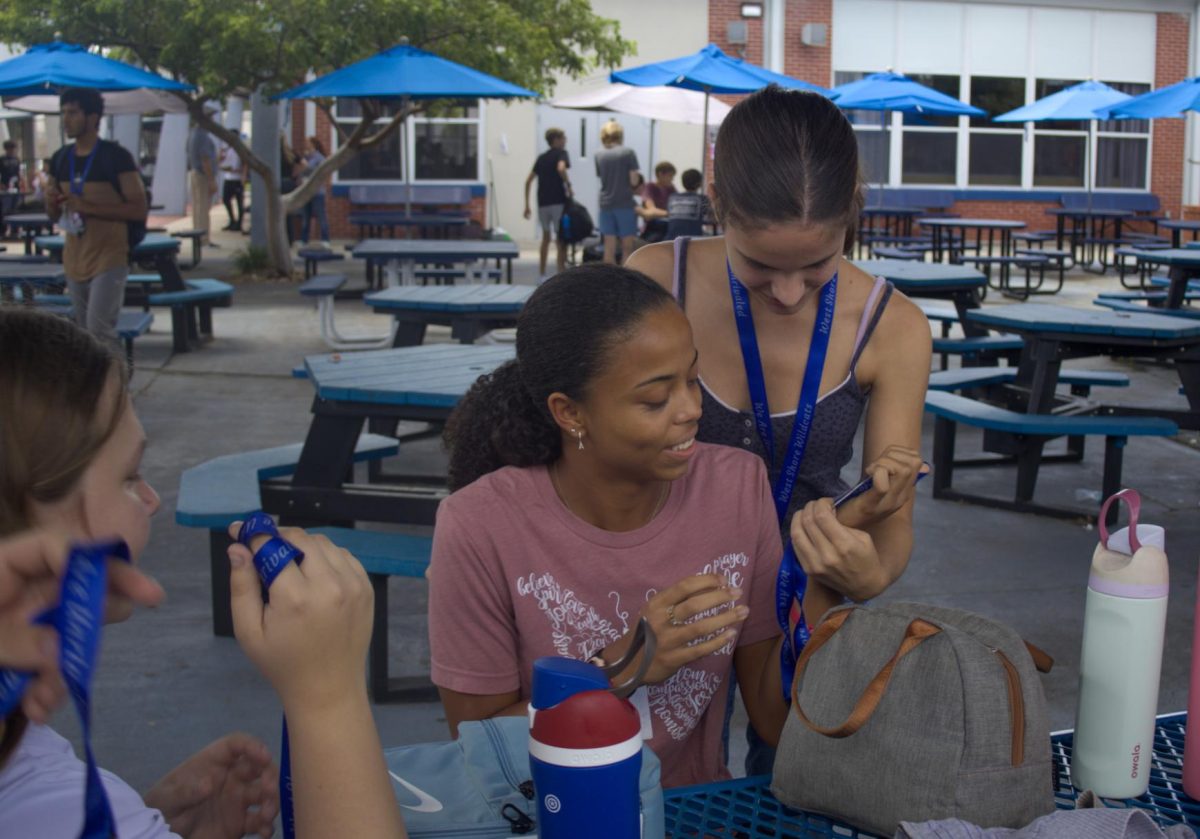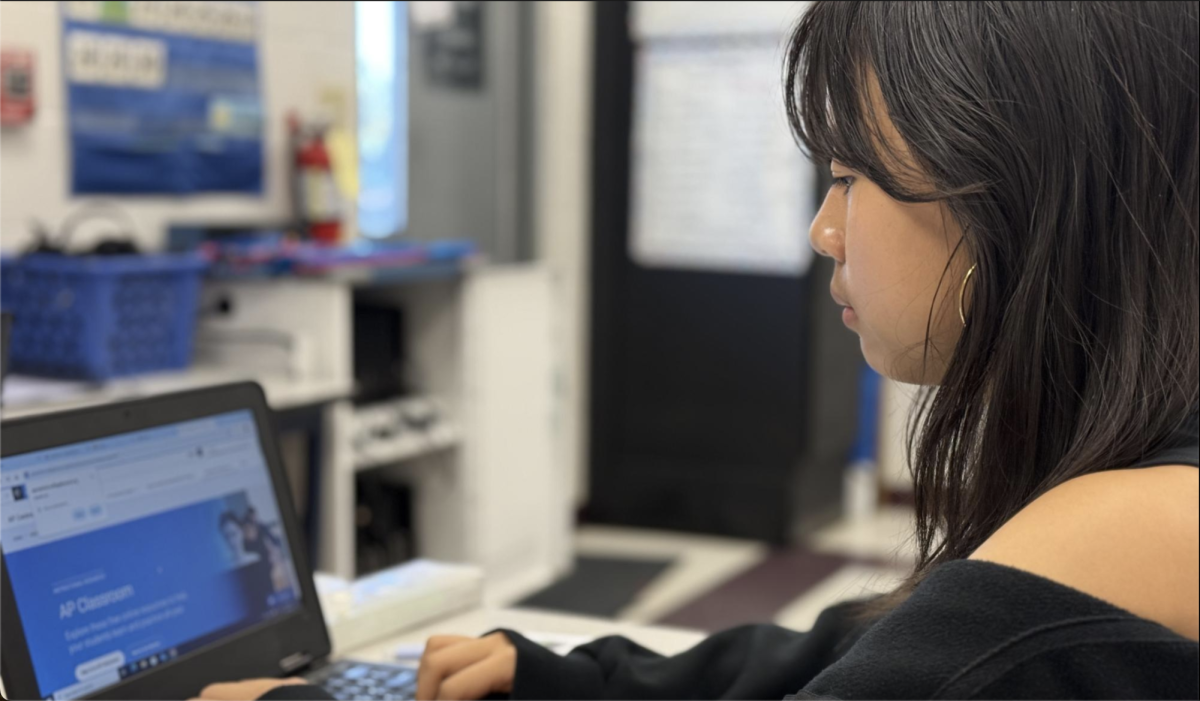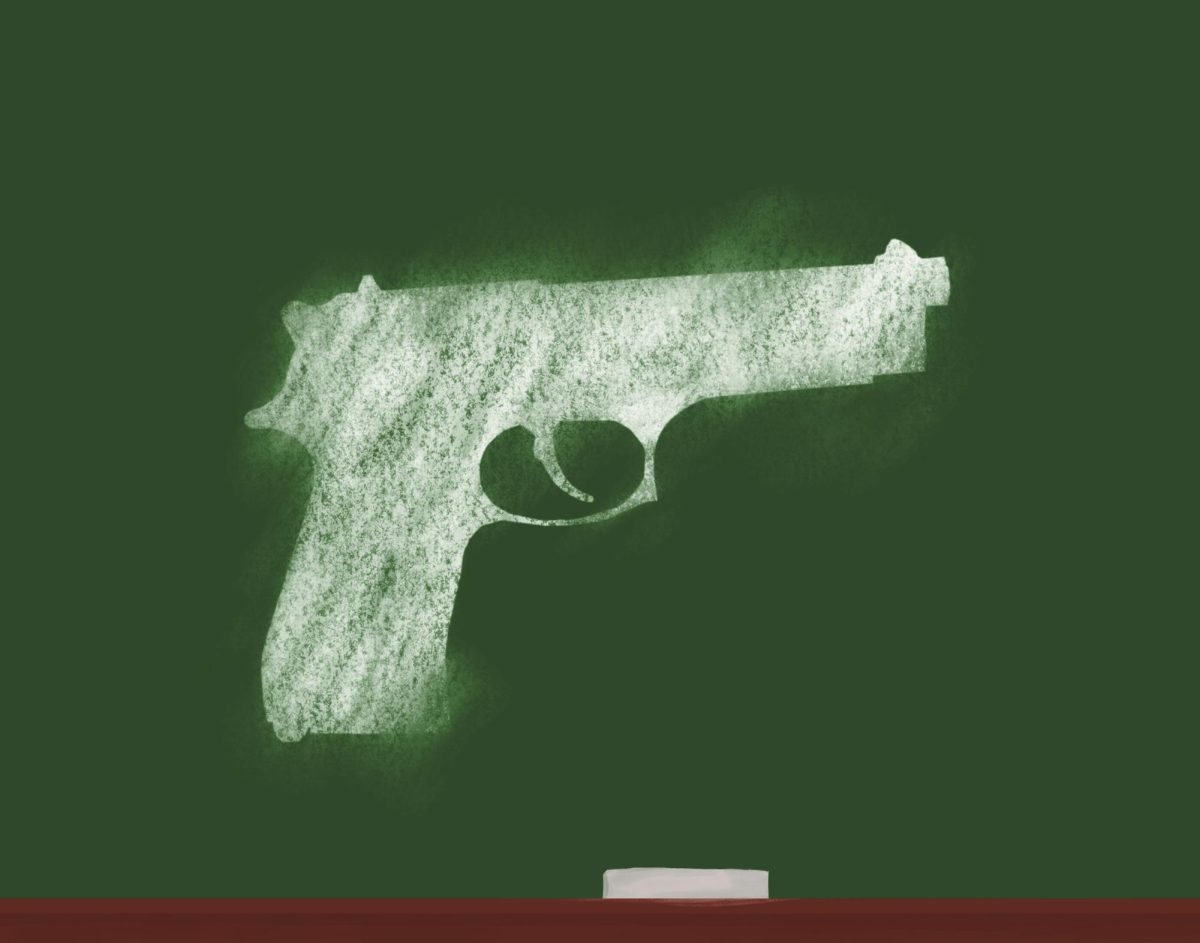When history teacher Kirk Murphy saw the news that the school board voted to reopen discussion on the Guardian Act, a state-sanctioned plan to arm classroom teachers, he said he was peeved but not surprised.
“Even though it was the same meeting where they said that Brevard County has one of the safest records, that every school has a school resource officer, they still voted to look back into doing the guardianship program,” he said.
Since the shooting at Marjory Stoneman Douglas in 2018, schools across the country have been taking extra measures to ensure the safety of students and staff. For instance, Florida has passed the Guardian Act in an attempt to prevent future incidents. Currently, this enables trained non-police officers to be employed at schools as security.
However, many counties, including Brevard, are discussing extending the bill to allow “qualified” teachers to carry guns. In 2018, when the bill was originally proposed, the Brevard School Board shut it down; however at a meeting on Oct. 24, School Board Chair Megan Wright asked to reopen the bill for discussion. Board members Matt Susin, Gene Trent and Katye Campbell supported the discussion, while member Jenifer Jenkins opposed it.
“Our administration runs the building. Our teachers teach, our security provides security,” Jenkins said. “If lawmakers are so comfortable with the idea of allowing my colleagues to carry on campus, then let them allow their colleagues to do so. They don’t and won’t, and there’s no reason for it.”
“Roar” staff contacted Megan Wright four times for her input, and she did not answer.
As a teacher, Murphy said he worries about the various questions the bill brings up.
“Where’s this gun going to be?” Murphy said. “How do we know a kid is not going to get a hold of it? There’s just so many issues that are at stake, that I don’t think they’ve considered. It goes against the grain of being a teacher. I feel that we’re supposed to be nurturers, teachers — not police. Police are fantastic, they do something different from what I do. I could not do what they do, and I would like to think they couldn’t do what I do. It just seems like you’re asking for trouble.”
Because schools employ security officers, there’s a debate about why teachers would need to be armed when there are other options.
“I think our [school resource officer] is awesome. She’s doing a fantastic job. I’ve worked at other schools where the SROs were fantastic and did awesome jobs. They are trained, they know what they’re doing,” Murphy said. “Put in another SRO if you want. Put two resource officers in every school. I’m fine with that, but the answer is not giving me or my coworkers guns.”
School Resource Officer Valarie Butler said she fears what could happen to teachers in the event of an emergency.
“If we were to have a situation where a teacher would be intervening with a firearm in a situation on campus, not only do they take on liability for that, but they take on the risk of there being people from my agency, people who don’t know the teachers,” Butler said. “All they see when they’re coming to respond to a shooting at a school is an adult with a gun.”
Concern about the bill is not limited to staff members. Aiden Beard, a sophomore at Melbourne High School, spoke alone in front of the school board during public comment at the Nov. 14 meeting.
“One of my biggest fears is that there would be no kind of background checks and any teacher would be able to carry, and for students who suffer from anxiety, because of firearms are not able to comfortably go to school,” Beard said. “It would just be taking away that safe space that school used to be.”
Jenkins shares some of the same worries.
“Our teachers are taught to lock down and protect their classrooms during an active shooter drill. In what scenario do we allow a teacher to then leave to go after an assailant,” Jenkins said. “Law enforcement will tell you: When an assault weapon is going off in concrete hallways, you almost immediately lose hearing and a sense of your surroundings.”
The program is based on teacher’s volunteering to arm themselves, meaning that all staff who pick up a gun would have to be willing to assume the risks involved with it.
“The possibility of it being beneficial is there, but the risk that [officers and district security] talk about behind closed doors is the safety of the teacher, because under-qualified people, statistically are very highly likely to have their own gun used against them,” Butler said.
In addition, arming teachers would imply that teaching is considered a “high risk” job. However there has been no discussion of additional pay.
“I was not on the board when this issue was debated in the past, but I was hyper-aware as an educator with BPS at the time,” Jenkins said. “They were discussing offering a $500 one-time supplement.”
Though the supplement was discussed in the past, Murphy said teachers have distrust in the current school board’s willingness to enhance their pay.
“There won’t be any pay raises, and I’m not even sure, would [teachers] have to buy a gun or are we given a gun?” Murphy said.
Arming teachers would also imply more than a pay raise. Teachers would have to be willing to take action against a student, considering half of all school shootings are committed by former or current students, according to the U.S. Government Accountability Office.
“I would like to say I would never do that, but if there’s somebody threatening a classroom of kids, I don’t know what I would do,” Murphy said. “I honestly don’t.”
The bill would require 144 hours of firearm training.
“No civilian can be prepared to react in that situation,” Jenkins said. “If we truly believe our current security measures aren’t enough, then put our money where our mouths are and hire more law enforcement. Don’t use our staff and the cheap way out.”
Categories:
Academic weapon
School board reopens discussion of arming teachers
Arabella Dias, Staff Writer
January 7, 2024


![Sophomore Isabelle Gaudry walks through the metal detector, monitored by School Resource Officer Valerie Butler, on Aug. 13. “I think [the students have] been adjusting really well," Butler said. "We've had no issues, no snafus. Everything's been running smoothly, and we've been getting kids to class on time.”](https://westshoreroar.com/wp-content/uploads/2025/08/IMG_9979-1200x800.jpg)



































